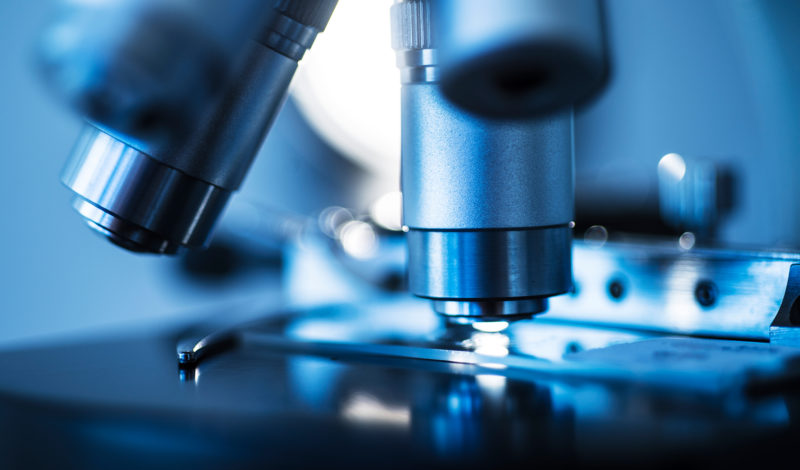With these 10 home remedies you build up your intestinal flora best A sore throat and earache and the doctor [...]

Disturbed intestinal flora: When intestinal bacteria cause symptoms
Where is the body’s own defence system actually located? It is now scientifically proven that the immune system is largely located in the intestine. In addition to thousands of bacterial species, up to 80 percent of the active defence cells are located in the intestine. Today, it is therefore assumed that a disturbed balance of intestinal bacteria can cause symptoms of various kinds. These include skin diseases and metabolic disorders as well as cancer and neurodegenerative diseases1
If the intestinal flora is disturbed, almost anything is conceivable. According to numerous studies, intestinal bacteria are the masters of your health and even your mood. The symptoms of a disturbance of the intestinal flora are therefore not only expressed by mere gastrointestinal complaints.
This is how the intestinal flora gets into imbalance
You’re wondering where the two to three kilos of bacteria in your intestines actually come from? The bacterial colonization of your gastrointestinal tract begins in the womb. The type of birth also has a considerable influence on the composition of the individual microbiome – for example, there are significant differences between birth by caesarean section and natural birth via the birth canal. In a natural birth process, the baby absorbs many bacteria which have a positive influence on the microbiome. Even the place of residence during childhood influences the quantity and number of different intestinal bacteria. For example, studies have shown that symptoms of allergy and diseases such as asthma are more common in city children than in rural children. Research assumes that contact with dirt and germs in childhood promotes the diversity of intestinal bacteria. The more diverse and balanced the microbiome, the more stable the general health is, according to current findings.
Hundreds of bacterial strains inhabit a healthy intestine. The Bacteroidetes and Firmicutes form up to 90 percent of the healthy intestinal flora. Colonization with useful bacterial species is disturbed when diversity decreases and an imbalance in the intestinal flora develops. The most important reasons for a lack of bacterial diversity include:
- unbalanced diet
- Gastrointestinal diseases
- Stress
- Travel
- Medication
- Toxins
Gut flora imbalance: multiple symptoms possible
Do you have an unbalanced diet, have you taken medication or have you had a lot of stress? In these cases, a disturbed intestinal flora can be a sign of an infestation with pathogens. The less diversity there is in the intestine, the easier it is for potentially harmful bacterial species to get out of hand in your intestinal microbioma. These include Escherichia coli, for example, which account for only about one percent in the normal microbiome.
The connection is simple: If the healthy balance of the intestinal flora is destroyed, the useful bacterial species can no longer fulfil one of their most important functions: In a healthy intestine they act like bouncers. They throw out harmful intruders or at least make life difficult for them. If this barrier function of the intestinal flora is disturbed, you are more susceptible to disease. In addition, beneficial intestinal bacteria in a balanced relationship with each other promote the immune cells and supply the organism with nutrients. So it’s no wonder that an imbalance among intestinal bacteria can cause symptoms throughout the body. The first signs of a disturbed intestinal flora are often the following complaints:
- Bloating
- Belly ache
- Nausea
- Vomiting
- intestinal inflammation
- deficiency symptoms
- Headaches
- Tiredness
- Susceptibility to disease
- Constipation
- metabolic problems
Even if you do not suffer from these symptoms and none of the triggers mentioned above apply to you, your intestinal flora may be disturbed. The causes of a lack of balance are as varied as their effects. In 2015, for example, a study suggested a link between intestinal bacteria and obesity and, according to Cork University, the bacteria in the intestine also produce hormone-like substances that affect mood. In any case, research agrees that mental or physical health interacts with the intestinal flora. You should therefore recognise a disturbed balance as early as possible and treat it with suitable measures – for the sake of your health.
- Sources
- Durbán, A., Abellán, J. J., Jiménez-Hernández, N., Ponce, M., Ponce, J., Sala, T., D’Auria, G., Latorre, A., & Moya, A. (2011). Assessing gut microbial diversity from feces and rectal mucosa. Microbial ecology, 61(1), 123–133. DOI: 10.1007/s00248-010-9738-y
- Chenshan Shi, Miaomiao Liu, Hongfei Zhao, Lisong Liang, Bolin Zhang. (2021) Formation and Control of Biogenic Amines in Sufu-A Traditional Chinese Fermented Soybean Product: A Critical Review. Food Reviews International 0:0, pages 1-22. https://doi.org/10.1080/16512235.2017.1353881
- Le Chatelier, E., et. al. (2013). Richness of human gut microbiome correlates with metabolic markers. Nature, 500(7464), 541–546. https://doi.org/10.1038/nature12506
- Ott, S. J., & Schreiber, S. (2006). Reduced microbial diversity in inflammatory bowel diseases. Gut, 55(8), 1207
- Human Microbiome Project Consortium (2012). Structure, function and diversity of the healthy human microbiome. Nature, 486(7402), 207–214. https://doi.org/10.1038/nature11234
- Cani PD. (2018) Human gut microbiome: hopes, threats and promises. Gut :67, 1716-1725. https://www.ncbi.nlm.nih.gov/pubmed/29934437
- Cani PD. (2015) Evaluation of the Effects Associated With the Administration of Akkermansia Muciniphila on Parameters of Metabolic Syndrome (Microbes4U) . https://clinicaltrials.gov/ct2/show/record/NCT02637115
- Cryan JF, Dinan TG. (2013) Mind-altering microorganisms: the impact of the gut microbiota on brain and behaviour. Nature Reviews Neuroscience :13, 701-712. https://www.nature.com/articles/nrn3346



